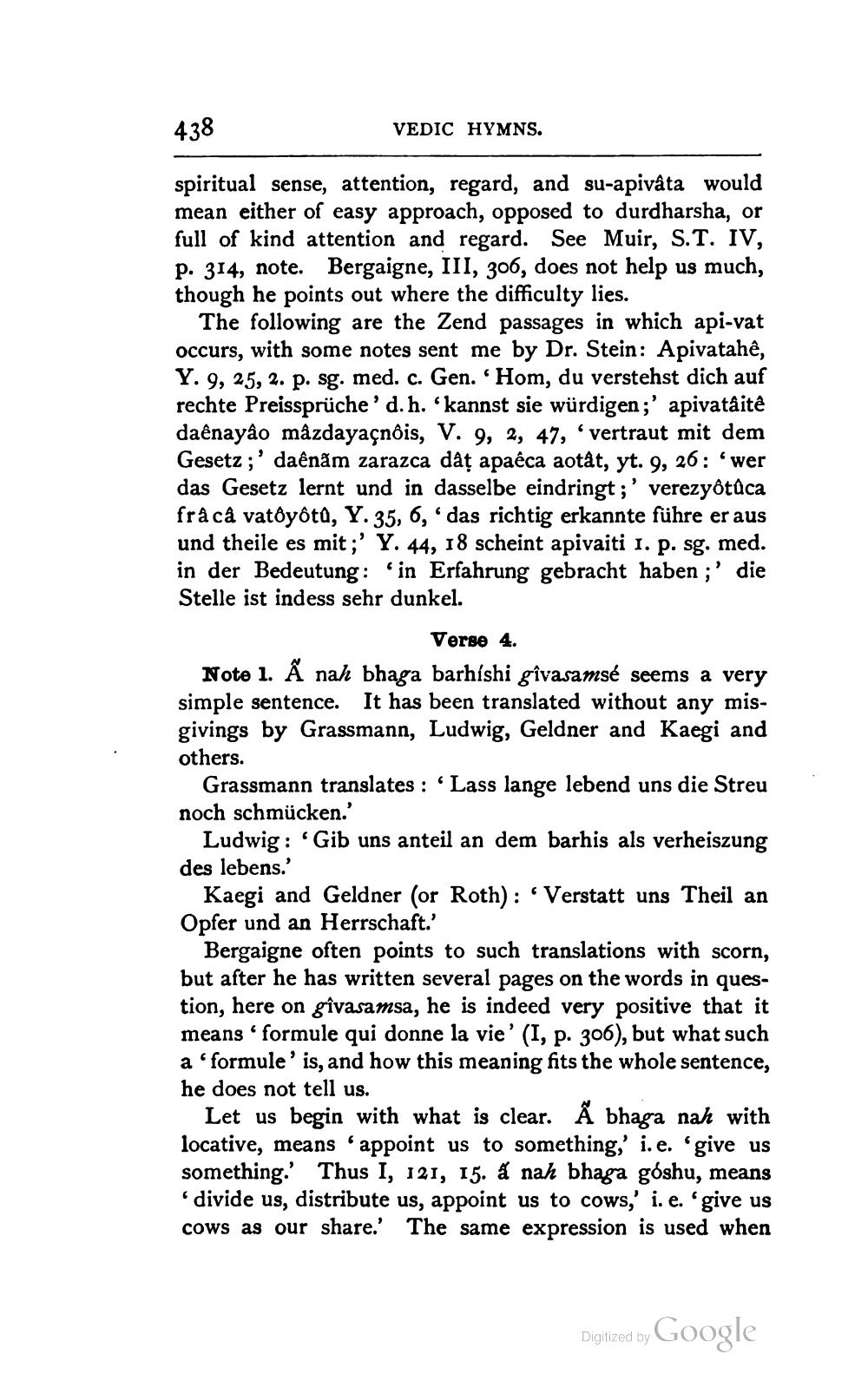________________
438
VEDIC HYMNS.
spiritual sense, attention, regard, and su-apivata would mean either of easy approach, opposed to durdharsha, or full of kind attention and regard. See Muir, S.T. IV, p. 314, note. Bergaigne, III, 306, does not help us much, though he points out where the difficulty lies.
The following are the Zend passages in which api-vat occurs, with some notes sent me by Dr. Stein: Apivatahê, Y. 9, 25, 2. p. sg. med. c. Gen. 'Hom, du verstehst dich auf rechte Preissprüche 'd. h. 'kannst sie würdigen;' apivatâitê daênayâo mâzdayaçnôis, V. 9, 2, 47, vertraut mit dem Gesetz;' daênăm zarazca dat apaêca aotát, yt. 9, 26: 'wer das Gesetz lernt und in dasselbe eindringt;' verezyôtůca fråcå vatóyota, Y. 35, 6, das richtig erkannte führe er aus und theile es mit;' Y. 44, 18 scheint apivaiti 1. p. sg. med. in der Bedeutung: 'in Erfahrung gebracht haben ;' die Stelle ist indess sehr dunkel.
Verse 4. Note 1. Â nah bhaga barhíshi gîvasamsé seems a very simple sentence. It has been translated without any misgivings by Grassmann, Ludwig, Geldner and Kaegi and others.
Grassmann translates : 'Lass lange lebend uns die Streu noch schmücken.'
Ludwig : Gib uns anteil an dem barhis als verheiszung des lebens.
Kaegi and Geldner (or Roth) : 'Verstatt uns Theil an Opfer und an Herrschaft.'
Bergaigne often points to such translations with scorn, but after he has written several pages on the words in question, here on givasamsa, he is indeed very positive that it means 'formule qui donne la vie' (I, p. 306), but what such a formule' is, and how this meaning fits the whole sentence, he does not tell us.
Let us begin with what is clear. Å bhaga nah with locative, means 'appoint us to something,' i.e. 'give us something.' Thus I, 121, 15. à nah bhaga góshu, means
divide us, distribute us, appoint us to cows,' i.e.'give us cows as our share. The same expression is used when
Digitized by
Digized by Google




